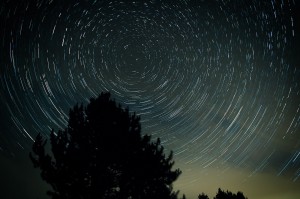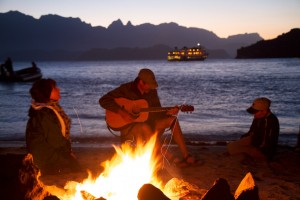When I first started my internship with CELL this summer, I wrote an “About Me” in which I explored the possibility that my interest in sustainability stems from ulterior motives: “maybe it’s because she secretly believes that one day one of those dystopian teen novels that are so popular nowadays is actually going to become reality and she wants to be able to strike it out on her own, off the grid.”
Well, you caught me. That’s really the reason I’ve been doing all this. I’m getting ready for the inevitable dystopian disaster that will provide a setting perfect for the next Hunger Games spin-off. And if you’ve been reading my blog at all this summer, you might just be ready, too.
All joking aside, I’ve come to my last week with CELL—my last blog post. So I thought I would end at the beginning. A circle, so to say. Like the Earth. Or a closed-loop system. Or that recycling triangle thing.
Which means that I’m returning to the list that I composed on the very first day of my internship, inspired by my not-completely-joking “About Me” speculation. So here it is: a list of Off-The-Grid Sustainable Skills That Would Be Useful in a Dystopian Teen Novel! (May also apply to Post-Apocalyptic or Fantasy Novels for any age, or really any books where they do anything interesting.)
Basic Wilderness Survival:

Photo courtesy Flickr
Starting a fire and knowing how to cook over it
- Finding water
- Hunting (note: hunting is sustainable only when it’s conscientiously done, i.e. from species whose populations are booming, and only for what you need to survive; never for sport alone)
- Archery (I’m looking at you, Katniss.)
- Traps
- Also fishing (note: the same rules apply to fishing as do to hunting)
- Foraging or Wildcrafting (identifying safe plants to eat)
- Finding/making shelter
- Navigation (by sun and stars)
- Telling time (by sun and stars)
- Bandaging wounds
- Knowing natural medicine for illness
- Avoiding poisonous plants and animals
- Cleaning animals you’ve hunted and using all the parts so none go to waste
Trades:
- Farming
- Carpentry/construction
- Mechanics (or, being able to tinker with things and get them working again instead of just tossing them out and buying a new one)
- Cooking and baking from scratch (I’m talking grinding the flour scratch)
Other:
- Communication (got to make those friends)
- Canning (there are no high-energy refrigerators in this world)
- Collecting water
- Passive solar energy (meaning: letting the sun keep you warm)
- Composting (for the garden you grow)
- Predicting the weather (accurately—not like Karen from Mean Girls)
Entertainment (all electricity and energy and TV/computer-free):

Photo courtesy Flickr
- Singing
- Dancing
- Storytelling
- Playing basic, portable musical instruments (not the high-maintenance ones)
As you may notice, many of these “skills” focus on a few basic concepts:
- Having a deep knowledge of nature and natural systems
- Making things
- Functioning without the internet (or electricity of any kind)
Obviously, this list is just for fun. (Until it’s REAL.) (Just kidding.) You probably have some skills you’d like to add, maybe even things you already do (or read in a book somewhere). I’m of the opinion that it can’t hurt to know how to do some (or most, or all, if you’re an overachiever) of these things. At the very least, we can practice our sustainable skills now, and hopefully we’ll never have to live in a dystopian world.
Good luck to all you eco-adventurers out there. It’s been great writing blog posts at you. And stay tuned for more exciting things to come from CELL.
By(e) Jessica Edington
